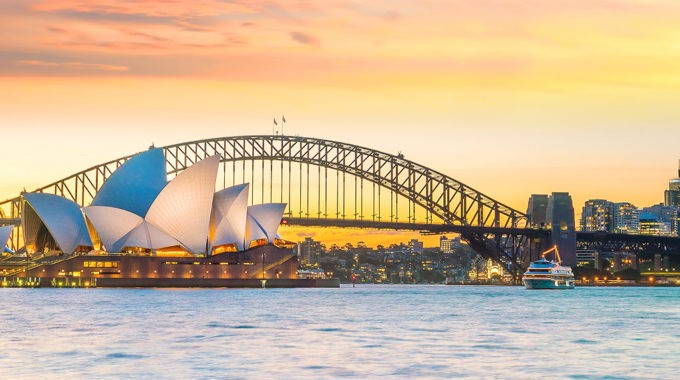FoodLab: a new vision for Sydney food
The Australian supermarket industry is dominated by just two colossal companies. An increasing number of Sydney’s bars and restaurants are owned and operated by just one mega hospitality group… and now they have Melbourne in their sights. Multinational fast-food chains continue to pop up on every second Aussie corner, and everything from our milk and soft drink to breakfast cereal and chicken is owned and branded by a select few.
As these corporate giants continue to expand and grow their already mind-boggling market share, our small, independently-owned food businesses are being priced out of the game, unable to match the formidable and boundless resources of big business. And as Australia’s food industry becomes more commercialised and depersonalised, the consumer is becoming increasingly detached from the provenance of their food.
Imagine if things could be different. Imagine if your local supermarket was owned and operated by people who shared your post code. That the cafes, restaurants and food shops you frequented were run by local people who represented the unique, culturally diverse and vibrant flavour of your city or suburb. This is the vision that a new pilot partnership in Sydney is working towards – and they’re making some very promising progress.
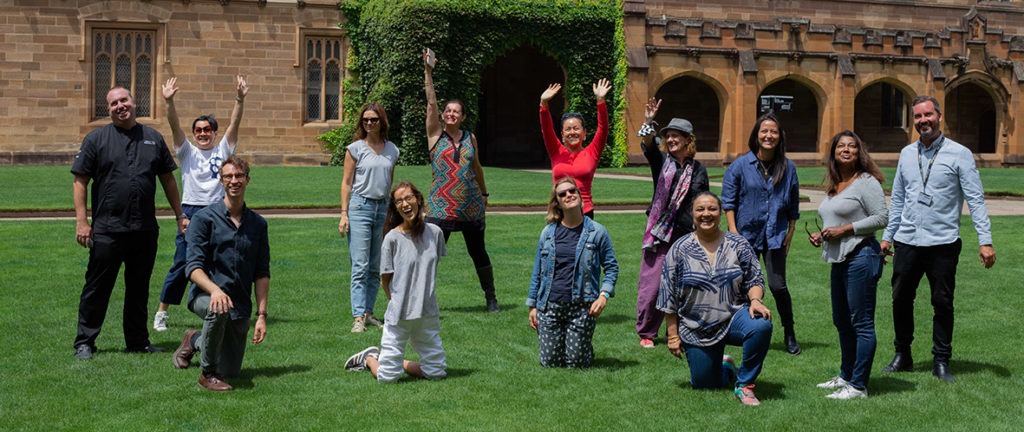
Changing the game
FoodLab Sydney is a for-purpose food business incubator based at the University of Sydney. It’s a program that aims to do much, much more than simply pump out more food business owners – FoodLab is gunning to radically transform Sydney’s entire food system.
Co-founded by University of Sydney academics David Schlosberg and Alana Mann, and supported by the University of Sydney, the City of Sydney, the Australian Research Council and TAFE NSW, FoodLab offers a program that empowers burgeoning food entrepreneurs with the skills, tools, networks and resources they need to become a forward-thinking food enterprise in their own right, or a changemaker within one.
The concept is based on FoodLab Detroit, a groundbreaking organisation born out of the social and economic decline of this once mighty and prosperous automotive city. Founded in 2011 by a small group of African American entrepreneurs, FoodLab Detroit has created a flourishing local food movement made up of more than 200 independent food distribution, processing and retail businesses that are committed to the “triple bottom line” – people, planet and profits. By providing good food and good jobs, FoodLab Detroit is creating a more equitable, healthy and sustainable local food system.
Taking inspiration from FoodLab Detroit’s model and curriculum, FoodLab Sydney is aiming to address the many problems that Sydney’s food system currently faces: food insecurity, food waste, gentrification and white, male corporate dominance.
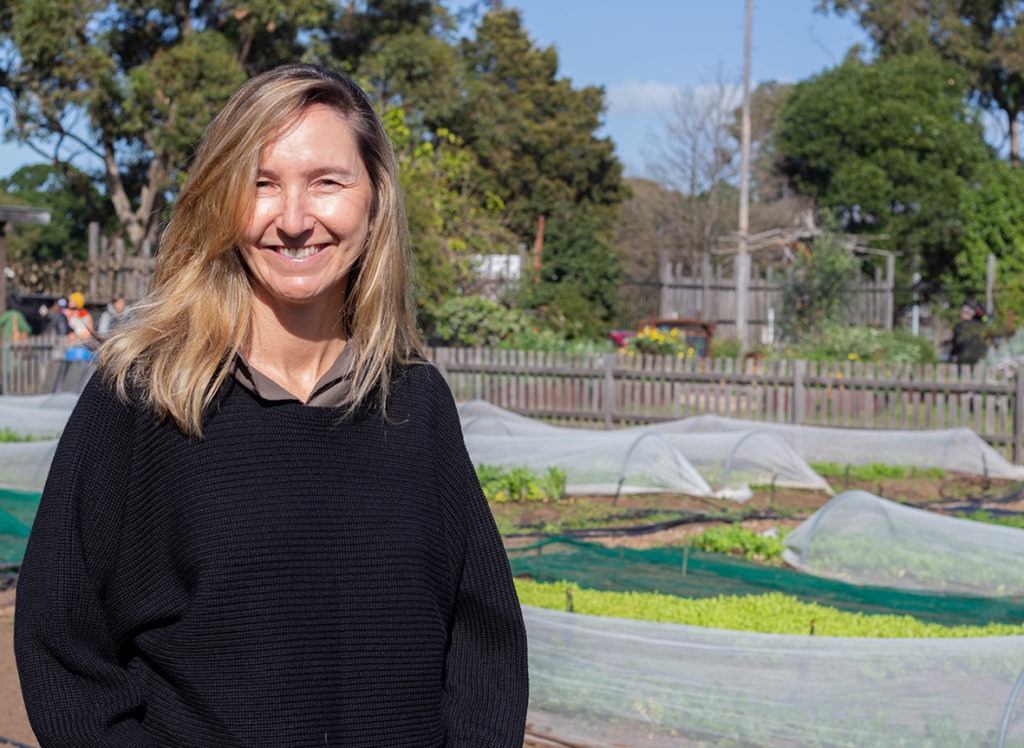
But isn’t Sydney awesome?
“You’d be surprised how similar Sydney is to Detroit,” Mann says. “Take Redfern, for example. There’s this process of gentrification going on – the people who live there can’t afford to buy a coffee there anymore. And with that gentrification comes the moving in of the major supermarkets and the Merivales. But what would happen if local people were starting new businesses instead of Justin Hemmes?”
In her work with the City of Sydney, Mann has also come to understand the fundamental flaws in our food relief system. For one, there remains very little data on how or why Australians become food insecure, which means there’s very little understanding of how to address it. Even the delivery model of food relief can in itself be counterproductive.
“The food relief model is very disempowering,” Mann says. “And it creates a lot of waste. That’s a big issue in Sydney, especially during COVID, because it became a situation where OzHarvest and other food rescue organisations were creating these hubs, places where people could go and collect food, but it wasn’t necessarily culturally appropriate food.
“At FoodLab, we’re keen for people to make food that’s culturally appropriate to them. That way, the community is better served, because these people live in that community.”
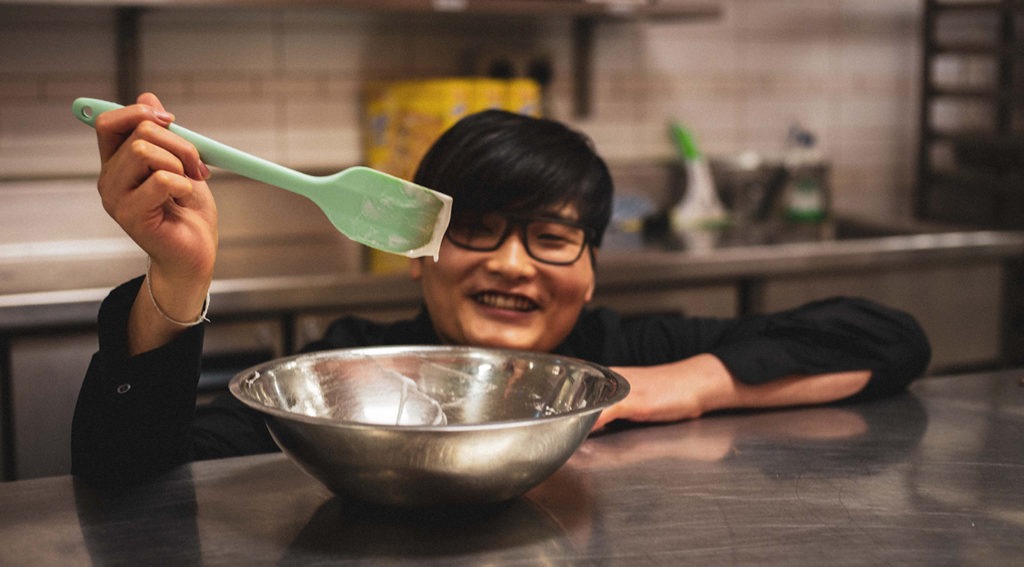
How FoodLab works
Serving the community’s food needs in a multicultural city like Sydney can only be achieved if there is broad diversity in the offerings available. This is the fundamental goal of the people behind FoodLab, who understand that the best way to increase diversity in Sydney’s food system is to start providing opportunities for a broader range of people who want to start their own food business – especially those who might not otherwise have had the kind of backing and encouragement that’s needed to get a business off the ground.
“There’s this hidden ecosystem where there are all these people doing amazing things with food, but it isn’t necessarily very visible, so the broader community doesn’t know what’s going on,” Mann says. “This means they don’t get the chance to create the kind of relationships that could give them a bit of help to get started.”
This is where FoodLab can make a genuine difference. Jamie Loveday, FoodLab’s Program Manager, says the program is really an “inclusion incubator”, and when they’re considering applications, they look for applicants who may not ordinarily be given a fair go.
“At FoodLab, we really want to focus on bringing in people who might not necessarily get the help and support that they need,” he says. “They’re the people that we really have a heart for; people who have in some way struggled to be connected to the food system.”
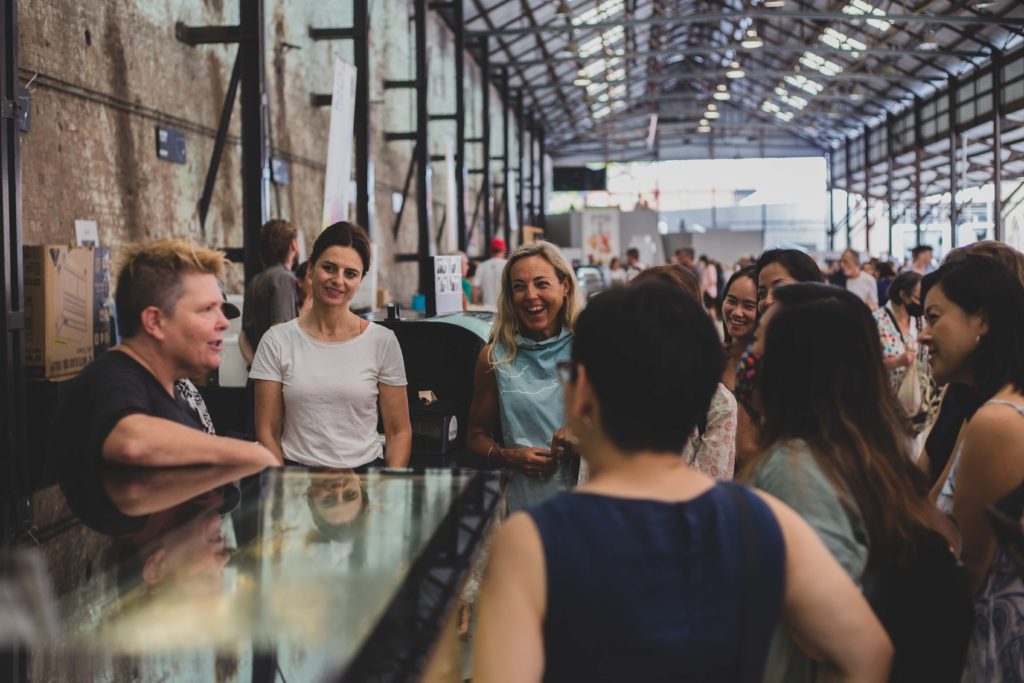
Shifting the goal posts
Each year, FoodLab takes in two separate cohorts made up of a highly diverse group comprising people of different genders, ages and ethnic, linguistic, socioeconomic and professional backgrounds. The program is co-funded by the City of Sydney and Sydney University through the Australian Government Australian Research Council, which means that the course is mainly scholarship-based, and therefore accessible.
The selected students undergo a three-month program that gives them an introduction to food entrepreneurship and sustainability, as well as hands-on technical, kitchen and food safety skills. During the program, students also get the opportunity to meet and connect with a wide range of successful local food retailers, manufacturers and changemakers who run their organisations using what the team at FoodLab calls “good food principles”.
“We bring in Love Food Hate Waste to talk students through what they do and how people can minimise food waste as a business,” Loveday says. “We connect them to mentors from the local food system – the people behind Pepe Saya, Crumpets by Merna, Buddha Bowl in Newtown, Ooooby, Feather and Bone. We take them to Carriageworks Farmers’ Market, where they get to meet all the producers; we take them through Sydney Uni’s kitchens, because they have a really strong sustainability focus.
“All these different people in the system who are following good food principles, we bring them in to show students how it’s done in practice.”
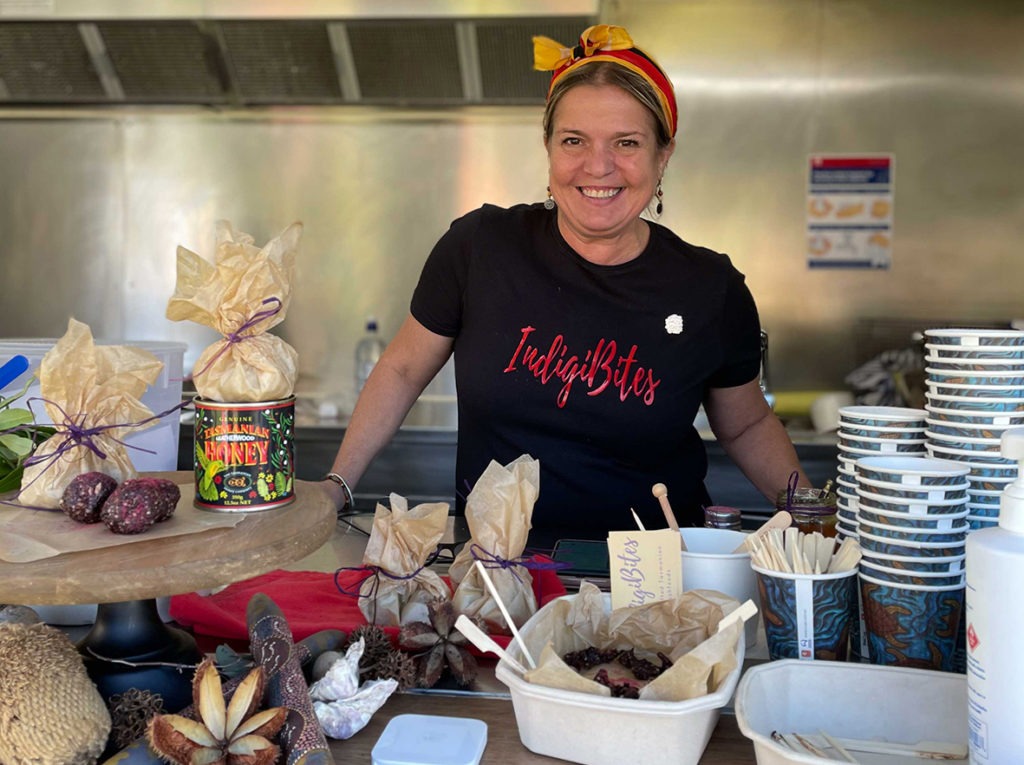
Be the change you want to see
Getting a new business off the ground means getting the consumer on board – if real change is going to happen in Sydney’s food system, it’s not just the producer who needs to change their way of thinking, it’s the consumer, too. FoodLab teaches its students that when you’re a business owner, educating consumers is part of the job description.
“We can’t force consumers to do what we want,” Loveday says. “But we can ask, don’t you want to know where your food comes from? Don’t you care about the supply chain? Yes, it might be a little bit more expensive. But who do you think pays for those cheaper costs?
“If we don’t have the next generation of food entrepreneurs who do ask those really hard questions and challenge consumers, I think we’ve lost our way.”
It’s certainly a lofty goal – change the food business model, change the consumer, change the city. But if that all sounds like too much effort, think about where we’ll be in the years to come if the seeds of change don’t start somewhere, and start soon.
“It’s looking at our food system and asking, what do you want it to look like in five years?” Mann says. “Do you want it to be all chain stores, or do you want it to be local and vibrant?”
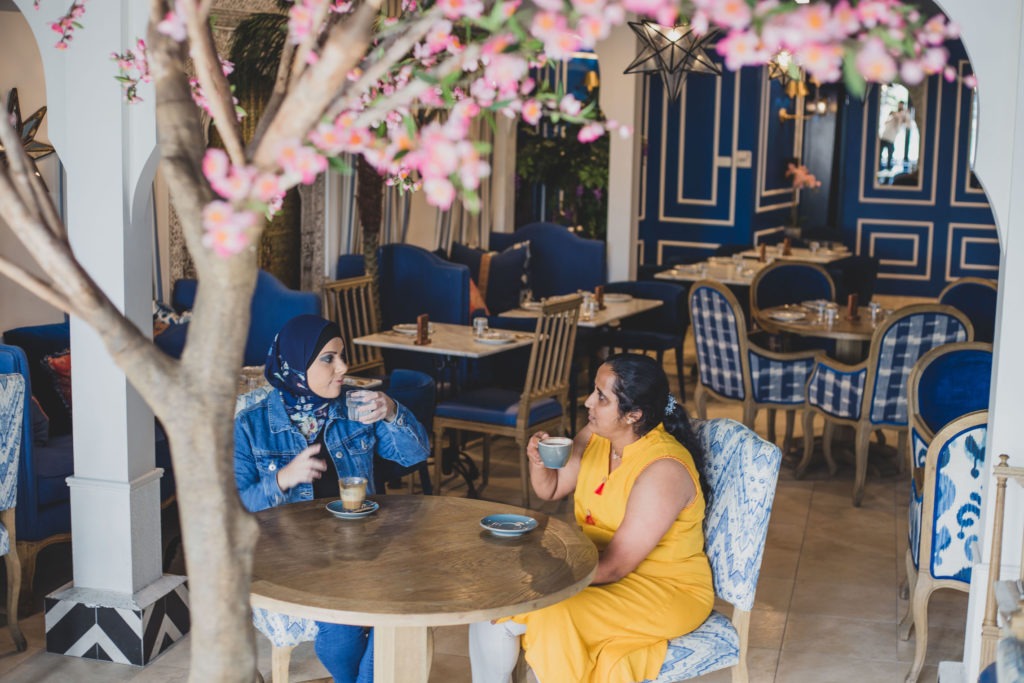
I think we’re onto something…
FoodLab Sydney is still a pilot project, and its initial funding will end after this year. But if the overwhelmingly positive outcomes of this unique program are anything to go by, it’s clear this is something that needs to continue. Many graduates have gone on to create their own businesses, from urban market gardens and native bushfood snacks to vegan cheese.
“It’s working,” Loveday says. “And the students come out of the program absolutely loving it; it’s really exciting to watch this kind of community come together. We had one student who now hosts these sustainable supper clubs where she takes excess produce from Ooooby and creates three-course dinners at some of our mentors’ cafes.
“I went to one the other week, and so many former students came along. There was this moment when I thought, ‘There’s a real community here. We’re really onto something’.”
Mann is equally passionate about the program and its results, as she watches the students complete their course and go on to flourish – not just professionally, but personally.
“We’ve seen them blossom, because they’ve found their people,” she says. “Bringing them all together and having them exposed to these amazing mentors who are doing great things in food – who often haven’t had easy journeys themselves – it’s been an incredible experience for them. Seeing how people can support each other, I think it’s made the participants realise that nobody does it perfectly, and no one does it alone.
“And there are all these other things that people are doing – educating as well as feeding people. It’s like a collective, a mobilisation, a movement. And I think it’s really self-fulfilling, because when they get together, it becomes bigger than FoodLab.”
To find out more about FoodLab, head to foodlabsydney.com


